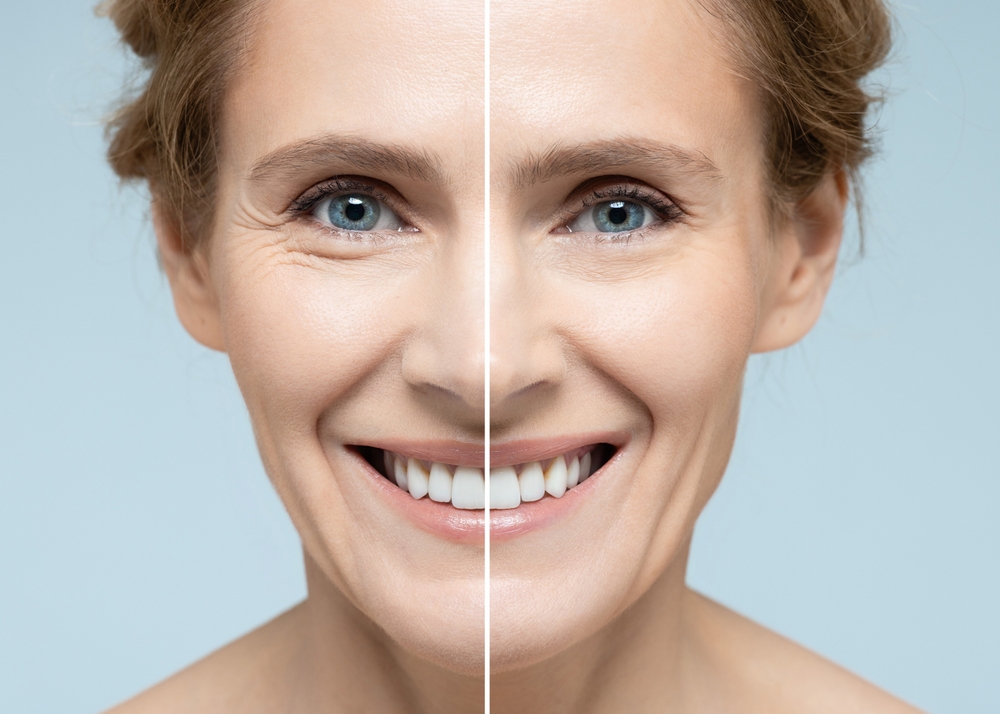
Midlife often brings a unique mix of responsibilities and pressures. Balancing career demands, family commitments, financial planning, and personal health can sometimes feel overwhelming. This stage of life is also when many people begin to notice the physical and emotional effects of stress more acutely. That is why stress reduction techniques in midlife are not just beneficial but essential for maintaining overall well-being. In this blog, we will explore proven strategies such as mindfulness meditation, progressive muscle relaxation, and practical time-management hacks. Each of these approaches provides tools to better manage stress, restore balance, and support long-term vitality.
Mindfulness Practices to Calm the Mind
Mindfulness has emerged as one of the most effective approaches for calming the mind and reducing stress. At its core, mindfulness involves bringing attention fully to the present moment without judgment. For those in midlife, mindfulness can help quiet racing thoughts and reduce the constant mental chatter that contributes to anxiety. Research consistently shows that regular mindfulness practice lowers stress hormone levels, improves focus, and enhances emotional resilience.
Guided vs. Silent Meditation Benefits
Mindfulness meditation can be practiced in different ways, with guided and silent sessions being two of the most popular forms. Guided meditation involves following verbal instructions, often from an app or teacher. This approach is especially helpful for beginners, as it provides structure and reassurance. It can direct attention to the breath, body sensations, or visualizations, making it easier to stay engaged. Silent meditation, on the other hand, allows practitioners to sit quietly and observe their thoughts without guidance. Many people in midlife find that silent meditation becomes more appealing with experience, as it encourages a deeper connection to inner stillness. Both guided and silent meditation offer benefits, and alternating between the two can create a well-rounded practice.
Progressive Muscle Relaxation Steps
Progressive muscle relaxation (PMR) is a practical and accessible technique that can be done almost anywhere. Developed in the early 20th century, PMR helps relieve tension by systematically tensing and releasing muscle groups throughout the body. For people in midlife who may experience physical stress in the form of headaches, tight shoulders, or sleep disturbances, PMR can be a valuable tool to reduce bodily discomfort and promote relaxation.
Tensing and Releasing Muscle Groups
The process of PMR is straightforward. Begin by finding a comfortable, quiet space where you will not be interrupted. Start at your feet, slowly tensing the muscles in your toes and holding the tension for about five to ten seconds. Then release completely, focusing on the feeling of relaxation as the muscles loosen. Continue moving upward through the body, calves, thighs, abdomen, chest, arms, and face, repeating the cycle of tensing and releasing. By the time you reach your head, most people report a profound sense of calm and reduced stress. Practicing PMR regularly can also increase awareness of areas where tension tends to build, making it easier to address stress early before it escalates.
Time-Management Tips to Reduce Overwhelm
One of the most significant contributors to stress in midlife is the constant juggling of responsibilities. Effective time management can be a game-changer in reducing overwhelm. By developing systems for prioritization, scheduling, and task management, it becomes easier to maintain control and prevent the sense of being constantly behind.
Prioritization and Scheduling Techniques
Prioritization is the foundation of effective time management. The Eisenhower Matrix, for example, is a powerful tool that divides tasks into four categories: urgent and important, important but not urgent, urgent but not important, and neither urgent nor important. By focusing first on urgent and important tasks, individuals can ensure critical responsibilities are addressed without neglecting long-term goals.
Scheduling also plays a critical role. Time-blocking, where specific hours are set aside for particular tasks, can create clarity and reduce decision fatigue. For those in midlife, this might mean allocating time in the morning for focused work, dedicating evenings to family, and reserving weekends for self-care. Digital calendars and task management apps can help keep everything organized, while also providing reminders to take short breaks throughout the day.
Another useful technique is setting realistic boundaries. Saying no to non-essential commitments and delegating tasks when possible allows for more space to focus on what truly matters. By doing so, it becomes easier to avoid the cycle of overcommitment that so often fuels stress.
Bringing It All Together
Stress in midlife is unavoidable, but how we respond to it makes all the difference. Mindfulness meditation helps quiet the mind and cultivate presence. Progressive muscle relaxation provides a way to physically release tension from the body. Time-management hacks empower individuals to take control of their schedules and reduce overwhelm. Together, these stress reduction techniques form a toolkit that can be applied daily to support both mental and physical well-being.
Partner with Longevity and Anti-Aging Oral Supplements & Solutions Today
Managing stress effectively during midlife is not just about immediate relief but about laying the foundation for long-term health and vitality. Incorporating mindfulness practices, progressive muscle relaxation, and strong time-management strategies can significantly improve quality of life. However, supporting your body from within is just as important.
At Longevity and Anti-Aging Oral Supplements & Solutions, we go beyond simply offering products; we cultivate a community focused on proactive health, natural vitality, and lasting independence. Through our curated range of wellness solutions, including the innovative StemActive supplement, we provide individuals with effective tools to support the body’s natural regenerative processes and promote healthy aging. In addition to promoting optimal wellness, our platform empowers people to take control of their financial futures through a rewarding, flexible business model rooted in trusted network marketing principles. Whether your passion lies in helping others age gracefully or in building a purpose-driven business, our team is committed to guiding and supporting you every step of the way. Join today!

When it comes to maintaining youthful, radiant skin, many people turn to advanced creams, serums, or cosmetic treatments. However, a growing body of research and holistic skincare practices suggest that facial massage techniques for anti-aging may be just as impactful. By stimulating circulation, encouraging lymphatic flow, and activating pressure points, facial massage can reduce puffiness, improve skin tone, and slow the appearance of fine lines and wrinkles. Below, we will explore the most effective methods, including lymphatic drainage, gua sha, and acupressure, while highlighting how to incorporate them into your self-care routine.
Lymphatic Drainage Strokes to Reduce Swelling
The lymphatic system plays a crucial role in removing toxins, excess fluid, and waste products from the body. When circulation slows or lymph nodes become congested, it can manifest as puffiness and dull skin. Lymphatic drainage massage is designed to encourage this natural detoxification process, leaving the skin brighter, tighter, and less inflamed.
Starting at the Neck and Moving Upward
A fundamental principle of lymphatic drainage massage is beginning at the neck, which houses major lymphatic pathways. By starting here, you create space for fluid to move from the face down toward the body. Use gentle, sweeping strokes from the collarbone upward, applying light pressure to stimulate lymph nodes. Then, move to the jawline, cheeks, and forehead, always guiding fluid in the direction of the ears and down the sides of the neck. This technique reduces morning puffiness and encourages a refreshed look.
Gua Sha Techniques for Collagen Stimulation
Gua sha, a centuries-old practice rooted in Traditional Chinese Medicine, involves scraping the skin with a smooth-edged stone tool. Today, it is increasingly popular in skincare for its ability to stimulate blood flow, promote lymphatic drainage, and encourage collagen production, which diminishes naturally with age. Regular gua sha practice can lift the facial contours, reduce fine lines, and improve skin elasticity.
Using Jade Rollers vs. Gua Sha Stones
While jade rollers are often marketed as a more accessible facial tool, gua sha stones provide deeper and more targeted benefits. Jade rollers are excellent for quick de-puffing and soothing the skin, particularly when chilled, but gua sha allows for controlled strokes that stimulate the underlying muscles and fascia. For anti-aging purposes, a gua sha stone is typically more effective because it engages deeper tissues, boosting circulation and encouraging long-term collagen production. Both tools can be beneficial when used consistently, but gua sha is ideal for those focused on facial sculpting and elasticity.
Acupressure Points That Lift and Tone
Acupressure, another ancient therapeutic method, is based on the idea that stimulating specific points on the body helps regulate energy flow. When applied to the face, acupressure encourages muscle relaxation, reduces stress, and enhances circulation. Over time, it can help lift sagging skin and create a natural glow, offering a non-invasive way to support skin health and vitality.
Pressure Levels and Stroke Directions
Unlike gua sha or lymphatic drainage, acupressure does not require tools. Instead, you use your fingertips to apply gentle but firm pressure on targeted points. For example, applying pressure between the eyebrows can relieve tension that causes frown lines. Pressing at the temples reduces stress-related wrinkles around the eyes, while massaging under the cheekbones can tone facial muscles. Always press for 5–10 seconds at a time, release, and repeat. Circular movements or gentle upward strokes further enhance the benefits by lifting the skin and promoting elasticity.
Why These Facial Massage Techniques Work
These massage techniques are powerful because they address the root causes of aging signs: stagnant circulation, toxin buildup, and stress. When blood flow improves, the skin receives more oxygen and nutrients, which aids cell renewal and collagen synthesis. By regularly practicing lymphatic drainage, gua sha, or acupressure, you support not only the surface appearance of your skin but also the health of the underlying tissues and muscles. Over time, these methods can complement your broader skincare routine, delaying the need for more invasive treatments.
Building an Anti-Aging Routine
For best results, incorporate these techniques into your routine 3–5 times per week. Begin with a clean face and apply a nourishing oil or serum to reduce friction. Dedicate at least 10–15 minutes per session to achieve noticeable effects. You may also want to combine practices, for instance, starting with lymphatic drainage to clear fluid buildup, following with gua sha for sculpting, and finishing with acupressure to relax the muscles and stimulate energy points. This holistic approach ensures your skin receives the maximum benefit from massage.
Supporting Anti-Aging from the Inside Out
While facial massage is a highly effective topical practice, it should be paired with internal support for optimal results. Diet, hydration, and supplementation play a critical role in skin health and aging. Collagen, antioxidants, and regenerative nutrients help reinforce the structural integrity of your skin, allowing facial massage benefits to last longer. By combining external and internal strategies, you can achieve more resilient, youthful skin.
Partner with Longevity and Anti-Aging Oral Supplements & Solutions Today
Facial massage techniques are more than just skincare trends; they are time-tested practices that harness the body’s natural processes to fight aging signs. Lymphatic drainage strokes reduce swelling and detoxify, gua sha techniques stimulate collagen and improve elasticity, and acupressure points lift and tone the face while relieving stress. By practicing these methods consistently, you can achieve a smoother, more radiant complexion while promoting overall wellness.
At Longevity and Anti-Aging Oral Supplements & Solutions, we believe in empowering individuals to age with vitality and grace. We go beyond offering products by fostering a community focused on proactive health and lasting independence. Through our curated range of wellness solutions, including the innovative StemActive supplement, we provide effective tools to support the body’s natural regenerative processes. Whether your goal is to enjoy healthy aging or to build a purpose-driven business through our flexible network marketing model, our team is here to support your journey. Join today and take the first step toward a brighter, more youthful future.

As we age, our digestive system often undergoes significant changes that affect nutrient absorption, metabolism, and overall vitality. That’s why it’s essential to prioritize gut health tips for older adults — strategies that support not just digestion, but also immune function, energy levels, and long-term wellness. By making mindful choices about diet and lifestyle, older adults can cultivate a healthier gut microbiome and enjoy more balance in daily life.
Below, we’ll explore practical ways to strengthen gut health, including probiotics, prebiotics, fiber, and mindful eating. These proven approaches can help restore harmony to the digestive system while promoting healthier aging.
Incorporating Prebiotics and Probiotics Daily
The gut is home to trillions of microbes that influence digestion, immunity, and even mood. Maintaining this delicate balance requires a steady supply of beneficial bacteria (probiotics) and the nutrients that feed them (prebiotics). Together, these create an environment where “good” bacteria thrive, reducing the risks of bloating, constipation, and inflammation.
Fermented Foods vs. Supplements
One of the simplest ways to increase probiotics is through fermented foods. Yogurt, kefir, kimchi, sauerkraut, and miso all contain live cultures that support microbial diversity. These foods also provide enzymes that make digestion smoother. However, consistency is key—sporadic consumption won’t provide long-term benefits.
Supplements can help fill in the gaps. A high-quality probiotic supplement ensures older adults receive targeted strains known for supporting gut resilience. For example, Lactobacillus and Bifidobacterium strains have been shown to reduce constipation and improve nutrient absorption in older populations. When paired with prebiotic-rich foods—such as garlic, onions, bananas, and oats—these probiotics flourish, enhancing their effectiveness.
High-Fiber Foods That Support Digestion
Fiber is often underestimated, yet it is one of the most powerful tools for digestive health. Not only does it regulate bowel movements, but it also nourishes beneficial gut bacteria and supports heart health.
Soluble vs. Insoluble Fiber Benefits
There are two main types of fiber, each offering unique benefits:
- Soluble fiber dissolves in water, forming a gel-like substance that slows digestion and stabilizes blood sugar. Sources include oats, apples, beans, and carrots. For older adults, soluble fiber helps manage cholesterol and reduces the risk of heart disease.
- Insoluble fiber adds bulk to stool, supporting regularity and preventing constipation—a common concern among seniors. Found in whole grains, nuts, and vegetables like broccoli, insoluble fiber keeps the digestive tract moving efficiently.
Incorporating both types daily is essential. A balanced intake of 25–30 grams of fiber per day is recommended for adults, though it’s important to increase gradually to prevent discomfort. Hydration is also crucial—fiber without water can actually worsen digestive issues.
Eating Habits for a Healthy Microbiome
What you eat matters, but how you eat plays an equally important role in digestive wellness. Small, mindful adjustments can dramatically improve gut function, nutrient absorption, and energy levels.
Chewing Thoroughly and Meal Timing
Many older adults underestimate the importance of chewing food thoroughly. Chewing not only breaks food into manageable particles but also mixes it with saliva, which begins the digestive process. By slowing down and chewing well, you reduce the burden on the stomach and intestines, helping prevent indigestion and gas.
Meal timing also supports gut health. Instead of large, heavy meals, smaller portions spread throughout the day often work better for aging digestive systems. Avoiding late-night eating gives the gut time to rest and repair, aligning with natural circadian rhythms. Additionally, establishing a consistent eating schedule helps regulate bowel movements and improves metabolic efficiency.
Beyond the Plate: Lifestyle Support for Gut Health
While diet forms the foundation of digestive wellness, lifestyle choices are equally influential. Stress management, physical activity, and adequate sleep all help balance gut bacteria. Chronic stress and sleep deprivation can disrupt the microbiome, while regular exercise enhances circulation, muscle tone, and digestion.
Even moderate activity, such as walking, swimming, or yoga, can reduce constipation and support overall vitality. Pairing these efforts with a gut-friendly diet creates a powerful synergy that keeps older adults feeling their best.
Taking a Proactive Approach to Healthy Aging
Supporting digestive balance isn’t just about avoiding discomfort—it’s about laying the groundwork for long-term independence, resilience, and quality of life. By prioritizing probiotics, fiber, and mindful eating habits, older adults can strengthen immunity, maintain energy, and reduce the risks of chronic conditions linked to poor gut health.
Invest in Your Gut, Invest in Your Future
Your digestive system is central to every aspect of wellness—from nutrient absorption to mental clarity. For older adults, gut health is the key to sustaining vitality and independence well into later years. By making intentional dietary and lifestyle choices, you can take charge of your aging process and enjoy more balanced, active living.
At Longevity and Anti-Aging Oral Supplements & Solutions, we go beyond simply offering products—we cultivate a community focused on proactive health, natural vitality, and lasting independence. Our curated range of wellness solutions, including the innovative StemActive supplement, empowers you to support your body’s natural regenerative processes.
Whether your passion lies in aging gracefully or building a purpose-driven business, our team is here to guide you every step of the way. Don’t just adapt to aging; defy it. Join us today and take the first step toward a healthier, more vibrant future.

As we age, maintaining cognitive sharpness becomes just as important as physical wellness. In fact, engaging in purposeful brain health activities for aging is one of the most effective ways to preserve memory, attention, and problem-solving skills. Research consistently shows that stimulating the mind, keeping the body active, and fostering meaningful social connections all play key roles in slowing age-related cognitive decline.
Mental Exercises to Challenge Your Mind
Keeping the brain active requires regular engagement in tasks that push cognitive limits. Just like muscles, the brain thrives on stimulation and challenge.
Crossword Puzzles vs. Strategy Games
Crossword puzzles have long been praised as a classic tool for sharpening vocabulary and recall. They help strengthen semantic memory (knowledge of facts and words) while offering a relaxing yet challenging way to pass time. However, puzzles are just one option.
Strategy games—like chess, bridge, or even modern board games—bring additional cognitive benefits. They encourage planning, adaptability, and critical thinking. Unlike crosswords, which focus on recall, strategy games emphasize executive functioning: the ability to anticipate outcomes, make decisions, and adjust to changing scenarios.
Digital strategy games, such as online simulations or even certain video games, can provide similar benefits while also offering convenient access. The key is variety—rotating between crossword puzzles and strategy-based activities ensures the brain receives well-rounded stimulation.
Learning New Skills and Hobbies
Beyond puzzles and games, learning something entirely new is a powerful way to form fresh neural connections. This could mean picking up a musical instrument, learning a foreign language, or taking a cooking class that emphasizes new techniques. Neuroplasticity—the brain’s ability to form and reorganize synaptic connections—remains active throughout life. By stepping outside of familiar routines, older adults can create pathways that support long-term cognitive resilience.
Physical Activities That Boost Cognitive Health
The mind and body are deeply interconnected. Physical activity doesn’t just build muscle and cardiovascular strength; it also improves blood flow to the brain, reduces inflammation, and stimulates the release of growth factors that protect neurons.
Aerobic Exercise and Neurogenesis
One of the most exciting areas of research in brain health highlights the link between aerobic exercise and neurogenesis, the creation of new neurons in the brain. Brisk walking, swimming, cycling, or dancing all enhance cardiovascular function, which directly benefits memory and processing speed.
Studies show that regular aerobic exercise increases the size of the hippocampus, the part of the brain associated with memory formation and learning. Even 20–30 minutes of movement several times per week can yield lasting benefits.
Strength training and balance exercises also matter. Building muscle improves insulin sensitivity and reduces inflammation—both critical factors in protecting against cognitive decline. Meanwhile, balance-based activities like yoga or tai chi not only lower fall risk but also incorporate mindfulness, which further supports emotional regulation and stress reduction.
Incorporating Movement into Daily Routines
Not every exercise session requires a gym membership or a structured plan. Walking the dog, gardening, or choosing stairs over elevators all count as brain-friendly activities. The consistency of movement is more important than intensity, especially for older adults seeking long-term benefits.
Social Habits That Support Brain Wellness
Humans are wired for connection. Social isolation has been linked to accelerated cognitive decline, while regular social interaction provides emotional support, intellectual stimulation, and opportunities for meaningful engagement.
Joining Clubs and Community Groups
One of the most effective ways to nurture social health is by joining clubs, volunteer organizations, or community groups. Whether it’s a local book club, a gardening society, or a choir, these activities combine cognitive stimulation with companionship.
Group settings often introduce problem-solving and creativity in ways that solitary activities cannot. For instance, participating in a debate group or attending a weekly discussion circle challenges memory, communication, and reasoning—all while fostering social bonds.
Technology has also expanded opportunities for connection. Virtual communities, online classes, and video-based group chats allow older adults to engage socially even if mobility or geography presents barriers.
Family Engagement and Intergenerational Bonds
Spending time with children or grandchildren also promotes brain wellness. Teaching younger generations a skill or sharing stories activates long-term memory while creating joy and purpose. These bonds provide not only emotional support but also ongoing cognitive challenge through conversation and shared experiences.
Additional Lifestyle Factors to Consider
While mental, physical, and social activities form the core of brain health strategies, other factors shouldn’t be overlooked:
- Nutrition: A diet rich in antioxidants, omega-3 fatty acids, and lean proteins supports brain health. Foods like blueberries, salmon, and leafy greens are particularly beneficial.
- Sleep: Quality sleep is essential for memory consolidation and emotional regulation.
- Stress Management: Chronic stress can impair memory and cognition. Mindfulness, meditation, and relaxation practices help mitigate these effects.
Combining lifestyle practices with mental and physical activity creates a holistic foundation for cognitive vitality.
Why Take a Proactive Approach?
Age-related decline is natural, but it doesn’t have to be inevitable. By embracing a proactive approach, older adults can extend their years of independence, creativity, and meaningful engagement. Activities like puzzles, aerobic movement, and social connection don’t just preserve memory; they enhance overall quality of life.
For many, integrating supplements into this lifestyle adds another layer of support. Science-backed formulations can help protect neurons, reduce oxidative stress, and promote regenerative processes in the body.
Join the Longevity and Anti-Aging Oral Supplements & Solutions Movement
At Longevity and Anti-Aging Oral Supplements & Solutions, we go beyond simply offering products—we cultivate a community focused on proactive health, natural vitality, and lasting independence. Our curated range of wellness solutions, including the innovative StemActive supplement, equips individuals with effective tools to support the body’s natural regenerative processes and promote healthy aging.
In addition to promoting optimal wellness, we empower people to take control of their financial futures through a rewarding, flexible business model rooted in trusted network marketing principles. Whether your passion lies in helping others age gracefully or in building a purpose-driven business, our team is committed to guiding and supporting you every step of the way.
Don’t wait to invest in your cognitive health. Explore our solutions and community today. Together, let’s redefine what it means to age with vitality, resilience, and independence. Join Today!



